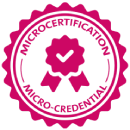Short course Right to education: Research skills to support advocacy 2024
This course will no longer be offered after 2024. For further information, please contact our partners: eduCoop and Right to Education Initiative

Information
Period
January 2024 - September 20244 ECTS credits
120 Distance teaching hours
16 hours over four half-days in group/synchronous sessions with guest speakers; 104 hours in individual/asynchronous sessions with the support of tutors.
EQF-level
6Language
EnglishFormat
Distance learningRegistration
Registration deadline
15 November 2023Fees:
CHF 2,000.-
Grants available subject to conditions (contact: Thibaut Lauwerier)
Objectives
- To be familiar with and acquire the methodological tools needed to conduct research into the right to education
- Knowing how to use research to build a solid case for advocacy
- Developing a network of experts on the right to education
Audience
Civil society organisations in the field of education
Learning outcomes
- Identify relevant topics and research questions (following aliterature review)
- Develop a methodology to address this issue
- Collect and analyse existing or original data
- Use the results of research for advocacy
Programme
4 modules:
- Identifying relevant topics and research questions on the right to education
- Methodology design and data collection
- Data analysis
- Valuing research for advocacy
Director(s)
Dr Thibaut LAUWERIER, Faculty of Psychology and Educational Sciences (FPSE), University of Geneva
Coordinator(s)
Dr Thibaut LAUWERIER, University of Geneva
Develop and mobilize your research skills in order to build a solid argument for advocacy in favour of education right

